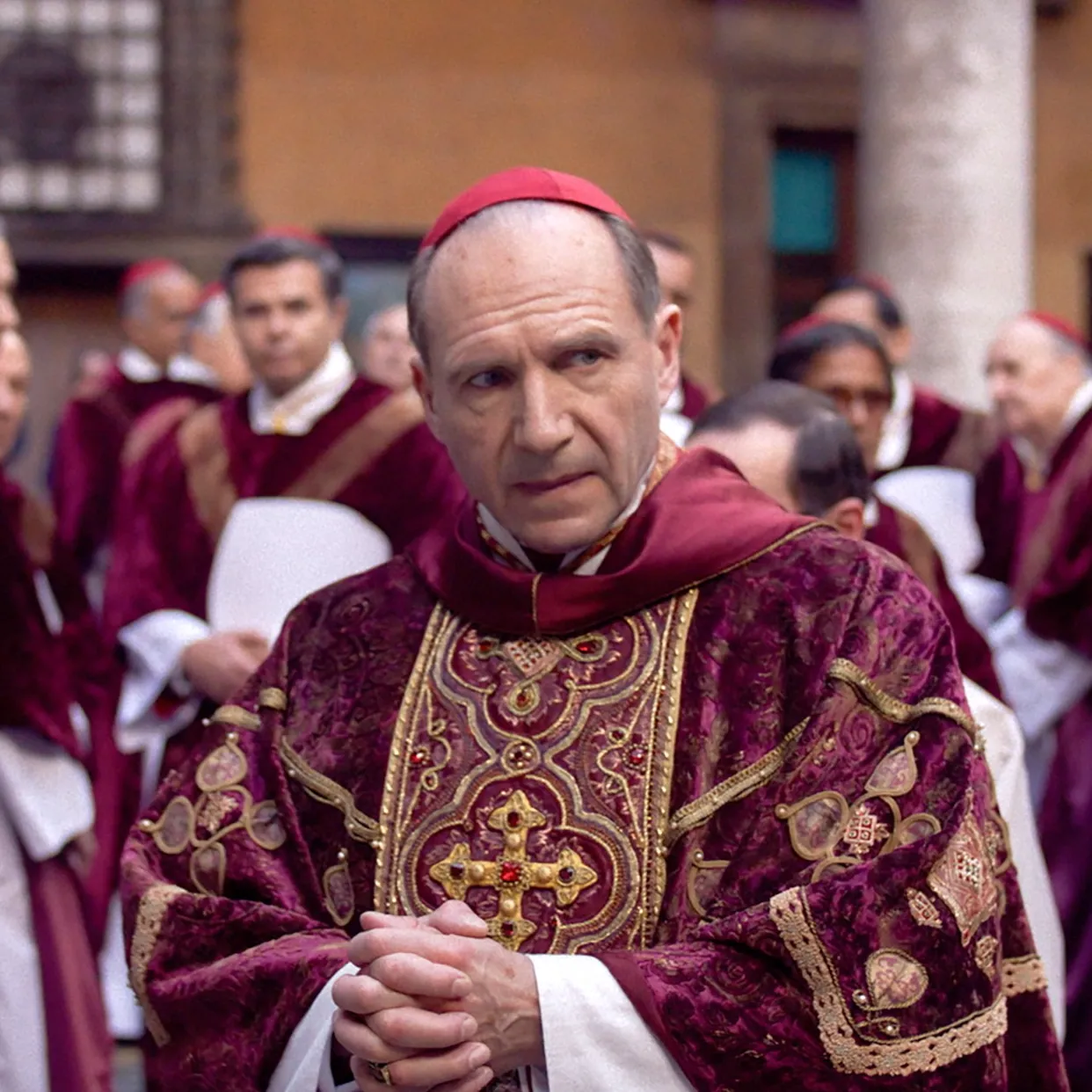“Conclave” is a classic Dad Movie—serious, intricately plotted, and suspenseful—and it offers old-fashioned pleasures, guilty or not.
It’s a tempestuous drama centered on the election of a new pope, evoking comparisons to 12 Angry Men with its well-defined characters and sturdy structure.
Some viewers may find it weighty enough for year-end awards consideration, while others might see it as self-important enough to provoke some amused chuckles—though, again, not without enjoyment.
And if it finally wins Ralph Fiennes the Oscar he’s long deserved, who would object? Fiennes delivers a fine, somber performance as Cardinal Thomas Lawrence, the dean of the Vatican’s College of Cardinals and the humble man tasked with overseeing the papal election following the peaceful death of his mentor, the pope, in the film’s opening scenes.
Directed by Edward Berger, who brought a similar gravitas to 2022’s All Quiet on the Western Front, Conclave plunges Cardinal Lawrence into a web of ambition and secrecy.
The contenders for the papacy are played by a distinguished ensemble of character actors, led by Stanley Tucci as Cardinal Bellini, the liberal faction’s favored candidate.
When Tucci first appears on screen, I couldn’t help but involuntarily exclaim “Tucci!”—a reaction I suggest all moviegoers adopt when their favorite character actors make an entrance.
Enter John Lithgow (Tucci!) as the scheming Cardinal Tremblay, piously trembling at the potential power within his reach.
Then there’s Isabella Rossellini (Tucci!) as Sister Agnes, who commands an army of nuns while seething at the church’s entrenched misogyny.
Sergio Castellitto portrays Cardinal Tedesco, a conservative longing to revert Catholicism to its Latin-speaking, altar-boy-ignoring past.
Lucian Msamati takes on the role of Cardinal Adeyemi, angling to become the first African pope. Meanwhile, Brían F. O’Byrne plays Cardinal Lawrence’s loyal assistant and confidant, serving as his right hand in this game of political chess. (Tucci! Tucci! Tucci!)
Fiennes’s portrayal of Lawrence is modest, but only to a point—he still wrestles with the late pope’s remark that “Some are chosen to be shepherds and some are chosen to manage the farm.”
As suspicions grow regarding his own ambitions, Conclave deftly suggests that perhaps Lawrence is the most strategic player of all.

Yet Fiennes keeps us on Lawrence’s side, skillfully conveying the character’s burdened decency and his slow, methodical uncovering of the hidden motives swirling around him. As always, the confessional proves to be an effective tool for digging up the truth.
The film is rife with scandals waiting to be exposed, secretive nighttime meetings, and incriminating documents concealed behind panels.
The cloak-and-dagger intrigue of Conclave is handled with grand cinematic flair, from Volker Bertelmann’s sweeping score—where plucked cello notes echo like slamming doors—to Stéphane Fontaine’s beautifully calibrated cinematography, dominated by blues and grays, with splashes of red deployed for dramatic effect. One standout shot of a sea of holy umbrellas is especially memorable.
The symbolism in Conclave is heavy-handed—a chessboard to signal the complex maneuvering in play, an open window to signify fresh air entering the conclave—but it works.
Peter Straughan’s screenplay, adapted from Robert Harris’s novel, has a brisk, theatrical quality, reminiscent of Aaron Sorkin’s style, with lofty declarations, biting exchanges, occasional moments of absurdity (“The Holy Father’s turtles!”), and confrontations that stop just shy of someone shouting, “You can’t handle the truth!”
Ultimately, Conclave is juicy entertainment, even if it doesn’t quite achieve the world-changing drama it aspires to be.
While the film hints at larger societal divisions beyond the Vatican walls, these are only suggested indirectly—we hear murmurs from the crowd as ballot after ballot fails to elect a pope, and black smoke rises into the sky.
Cardinal Lawrence delivers a sermon warning his fellow cardinals about the dangers of certainty—“the great enemy of unity, the deadly enemy of tolerance”—inviting the audience to reflect on the balance between tolerance and naiveté in their own lives and political choices.
The character that lingers most in memory, though, is the film’s most idealistic: Cardinal Benitez (played by Carlos Diehz), the wildcard of the conclave and a figure of moral purity who eventually emerges as a Christ-like figure—and more, thanks to a last-minute twist that ensures Conclave will be talked about for longer than it probably deserves.
In the end, the film may feel less like a profound novel of ideas and more like a mass-market thriller—but just like paperbacks, this movie has its time, place, and particular enjoyments. Tucci!


